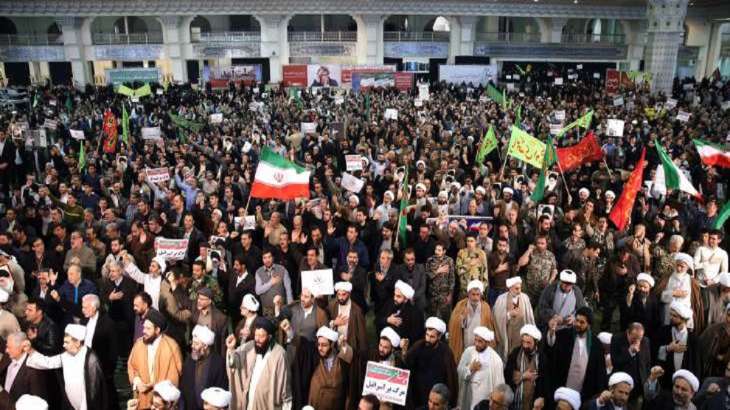
Iran executed three people in connection with anti-government protests last year amid objections raised by several human rights groups. The three were identified as Majid Kazemi, Saleh Mirahshemi and Saeed Yaghoubi, according to the judiciary website Mijan, but no cause of death was given.
Rights groups say all three were tortured, forced into a televised confession and denied due process. The protests erupted last September following the death of Mahsa Amini, a 22-year-old woman who was detained by the country’s morality police for allegedly violating a strict Islamic dress code. The demonstrations escalated sharply to overthrow the theocracy that has ruled Iran since the 1979 Islamic Revolution.
The demonstrations have largely subsided in recent months, although there are still sporadic acts of defiance, including the refusal of a growing number of women to wear the mandatory Islamic headscarf known as the hijab. Iran has executed a total of seven people in connection with the protests. Rights groups say he and many others sentenced to death were convicted by secret state security courts and denied the right to defend themselves.
Hadi Ghaemi, executive director of the New York-based Center for Human Rights in Iran, said of the three, “The prosecution relied on coerced ‘confessions’, and the indictment was riddled with irregularities, indicating it was a politically motivated case”. ” Done on Friday. The group said Kazemi had called a relative and accused the officers of torturing her by whipping her legs, using stun guns and threatening her with sexual assault.
Amnesty International criticized the cases
London-based Amnesty International also criticized the cases. “The shocking manner in which the trial and conviction of these protesters was fast-tracked through Iran’s judicial system amidst torture-tainted ‘confessions’, serious procedural flaws and a lack of evidence, is an example of the brazen defiance of the Iranian authorities. There is another example. For the right to life and a fair trial,” said Diana Eltahawy, Amnesty’s deputy director for the Middle East and North Africa.
Iran launched a heavy crackdown on the protests, portraying them – without evidence – as a foreign-backed conspiracy. Protesters said they were fed up with decades of repression and bad governance. Iran’s economy has been in decline since unilaterally withdrawing from the 2015 nuclear deal and reinstating severe sanctions.
US envoy to Iran Robert Malley spoke out against the impending execution of the three men, calling it an “insult to the human rights and basic dignity of all Iranians” that showed the government had “learned nothing from the protests.”
“The United States will stand with the Iranian people. We are coordinating closely with our allies and partners to expose and confront the Iranian regime’s continued human rights abuses, Malley tweeted Thursday. The European Union condemned the execution “in the strongest possible terms” and called on Iran to abolish capital punishment.
More than 500 people have been killed during months of protests, including dozens of members of the security forces. Some 19,000 people were arrested, although many have been released. Iran is one of the world’s leading executioners. At least 582 people are expected to be executed in 2022, up from 333 the previous year. The increase in executions, including drug violations and vague charges of “enmity against God” and “spreading corruption on earth”, has drawn criticism from United Nations officials and human rights activists.
(with inputs from AP)
Read this also | Iran issues death sentence to anti-government protester: report
Read this also | Iranian protesters rally to mark 40 days since Mahsa Amini’s death in police custody